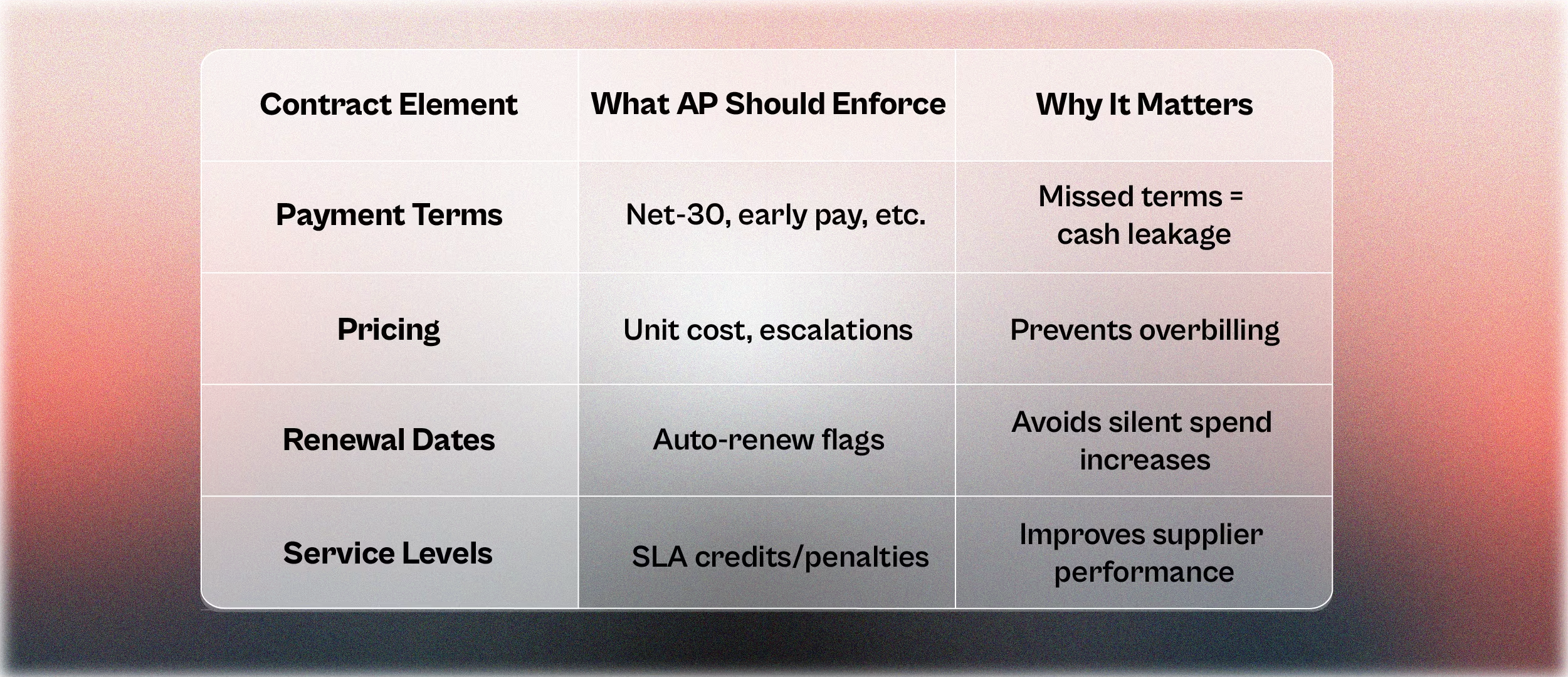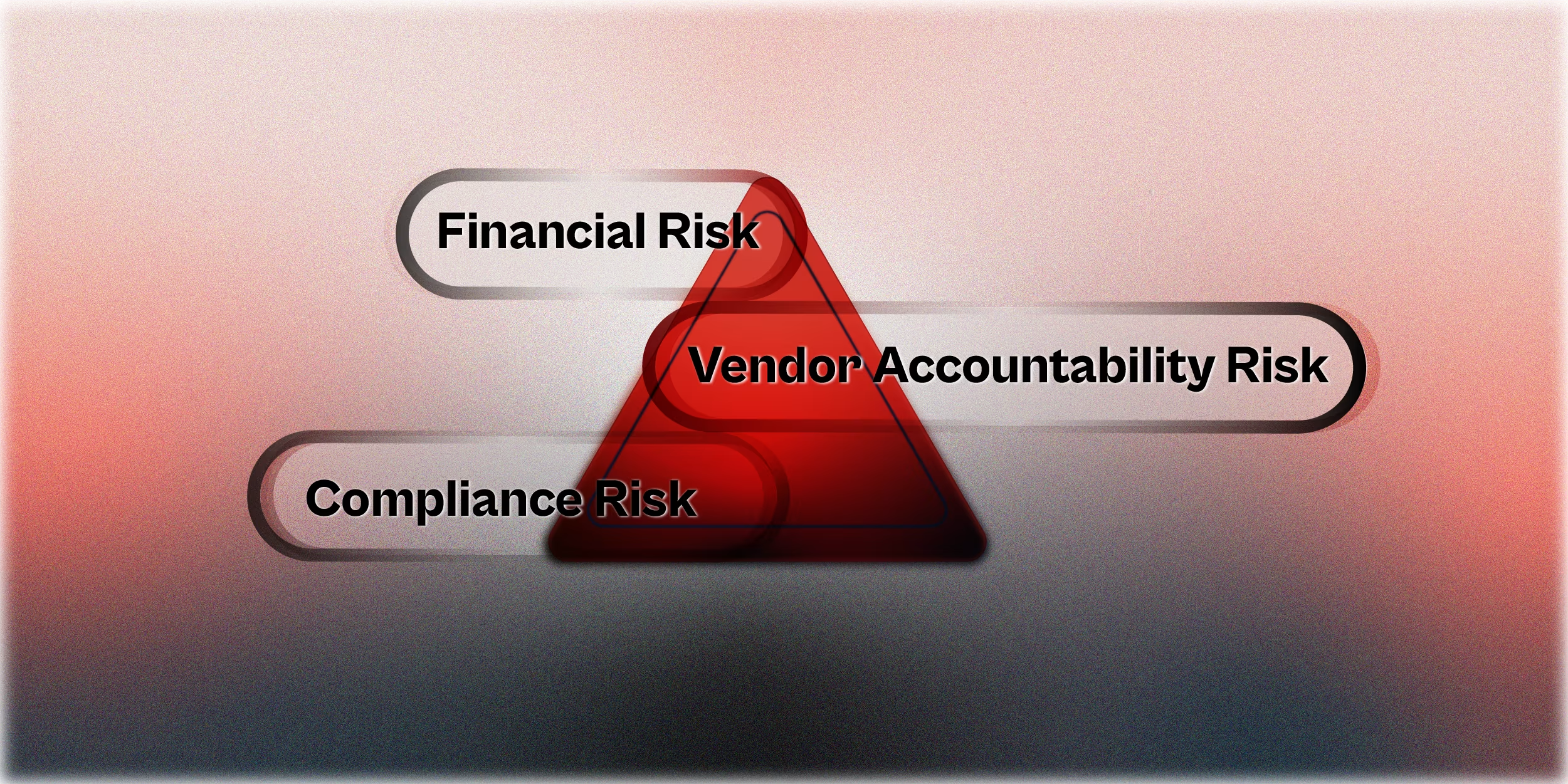Why Contracts Belong in AP
Too often, vendor contracts live in procurement systems or shared drives far from the AP team responsible for enforcing payment terms. That gap creates serious risk:
- Overpayments from mismatched invoices
- Missed early-payment discounts
- Untracked SLAs or renewal clauses
If AP can't access contract terms, it can't enforce them.
The Risk Triangle: What AP Must Manage
Financial Risk
Duplicate payments, overbilling, and fraud thrive when AP lacks visibility into contract terms. One study shows 80% of AP fraud involves invoice or vendor master manipulation.
Compliance Risk
Without access to terms like audit rights or tax obligations, AP may inadvertently breach internal policies or regulatory requirements (e.g., SOX).
Vendor Accountability Risk
Contracts define SLAs, penalties, and renewal terms. If AP doesn’t track these, suppliers face no operational accountability.
Where AP Adds Value to Contract Enforcement

Without AP Involvement: What Can Go Wrong
Real Example: A mid-market manufacturing firm paid $125K for duplicate invoices over 3 quarters - the original and a reissued version because AP lacked visibility into unit prices outlined in the master agreement.
How Automation Helps
Modern AP automation solutions now integrate:
- OCR and AI to pull metadata from contracts
- 3-way match with contract, invoice, and PO
- Renewal alerts to avoid silent auto-renewals
- Exception workflows for out-of-contract billing
According to Ardent Partners, Automated contract-to-pay systems reduce payment errors by 60-70% and cut fraud risk in half.
Real Impact: Contract-Aware vs Contract-Blind AP

Contracts aren’t just legal obligations, they’re blueprints for financial accuracy. Embedding contract data into your AP workflow lets you:
- Enforce payment accuracy
- Reduce compliance gaps
- Hold suppliers accountable
Ready to make your AP contract-aware?







